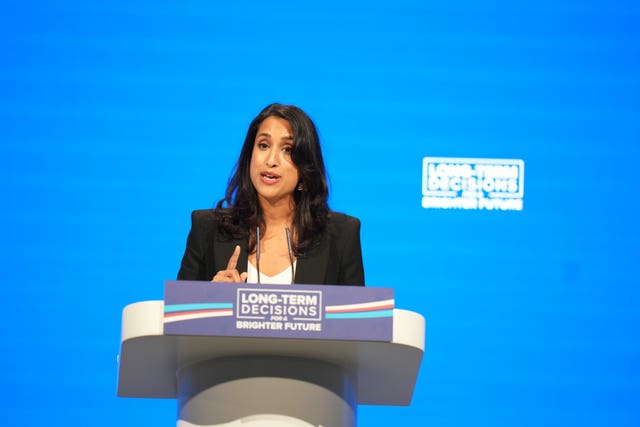The UK Government revealed plans to mandate oil and gas licensing in the North Sea in a bid to reduce dependency on “hostile foreign regimes”, it will be announced in the King’s Speech.
The plans were set to provide job security for 200,000 workers in the £16 billion industry more secure, and to help with the transition to net zero in 2050.
Legislation to be set out later this week in the King’s Speech will require the North Sea Transition Authority (NSTA) to invite applications for new production license on an annual basis to “safeguard the prosperity of our country”.
Data published by the Climate Change Committee showed the UK will continue to rely on oil and gas to help meet its energy needs even after net zero in 2050.
Production from new gas and oil fields in the North Sea can be much cleaner than older ones, and it is tipped to help unlock green investment and development of technologies including hydrogen.
Renewables generated a record 48.1% of electricity in the first quarter of this year.
The UK Government said the move would “bolster energy security, reducing reliance on imports from hostile foreign regimes such as Russia” and “leaving us less exposed to unpredictable international forces”, which was promised to lower household bills.
Encouraging domestic gas production, rather than importing higher-carbon emitting liquified natural gas from other countries, means lower carbon fuels for the UK.
Each annual licensing round will only take place if key tests are met that support the transition to net zero, including that the UK must be projected to import more oil and gas from other countries than it produces at home, and that carbon emissions associated with the production of UK gas are lower than the equivalent emissions from imported liquefied natural gas.
If both tests are met, the NSTA will be required to invite applications for new licences annually.
Prime Minister Rishi Sunak said: “I am proud that the UK is a world leader in reducing emissions, and of our new plan to transition to net zero without adding undue burdens on households and securing the country’s long-term interest.
“Domestic energy will play a crucial role in the transition to net zero, supporting jobs and economic growth, while also protecting us from the volatility of international markets and diversifying our energy sources. The clarity and certainty that our new legislation will provide will help get the country on the right path for the future.”

Secretary of State for Energy Security and Net Zero Claire Coutinho, said: “The UK has cut its emissions faster than any of its peers.
“But as the independent Climate Change Committee acknowledges, we will need oil and gas even as we reach net zero.
“It’s common sense to make the most of homegrown advantages and use oil, gas, wind and hydrogen on our doorstep in the North Sea.
“Rather than importing dirtier fuels from abroad, we want to give industry the certainty to invest in jobs.”
Offshore Energies UK chief executive David Whitehouse, said: “The UK needs the churn of new licences to manage production decline in line with our maturing basin.
“A predictable licencing process with transparent checks will support the highly skilled people working in the sector, while ensuring the granting of new licences is compatible with energy security and net zero.
“We all recognise that our energy system must change, and the offshore energy sector is committed to delivering on the climate goals of the UK.
“We should prioritise our homegrown production to support our energy security, our economy, our jobs, and our world class supply chain that will be the foundation of our low carbon future.”
Jon Butterworth, chief executive of National Gas, said: “Gas is the backbone of our nation’s energy system – and it is vital we make the most of the abundant resources we have.
“National Gas are delighted to see the government give their firm backing to the UK’s gas sector today, maintaining the security of our energy supply and ensuring we can continue to power the country as we transition towards net zero.
“By backing gas and embracing hydrogen we can create jobs, secure energy independence, deliver net zero, and keep costs down for households and businesses.”




Why are you making commenting on The National only available to subscribers?
We know there are thousands of National readers who want to debate, argue and go back and forth in the comments section of our stories. We’ve got the most informed readers in Scotland, asking each other the big questions about the future of our country.
Unfortunately, though, these important debates are being spoiled by a vocal minority of trolls who aren’t really interested in the issues, try to derail the conversations, register under fake names, and post vile abuse.
So that’s why we’ve decided to make the ability to comment only available to our paying subscribers. That way, all the trolls who post abuse on our website will have to pay if they want to join the debate – and risk a permanent ban from the account that they subscribe with.
The conversation will go back to what it should be about – people who care passionately about the issues, but disagree constructively on what we should do about them. Let’s get that debate started!
Callum Baird, Editor of The National
Comments: Our rules
We want our comments to be a lively and valuable part of our community - a place where readers can debate and engage with the most important local issues. The ability to comment on our stories is a privilege, not a right, however, and that privilege may be withdrawn if it is abused or misused.
Please report any comments that break our rules.
Read the rules hereLast Updated:
Report this comment Cancel